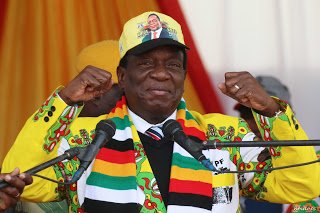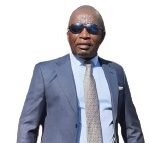 |
| File picture: President Emmerson Mnangagwa |
…as
ruling party ignores citizens’ voices, railroads constitutional changes
Veeslee Mhepo
The sailing
through Parliament, of the Zimbabwe Constitutional Amendment Bill Number II,
which among other things, gives President Emmerson Mnangagwa unfettered powers
over the appointment and promotion of judges has been widely viewed as
retrogressive and a way of creating a dictator.
The
Bill, which now awaits the Senate nod, deletes the running mate clause, okays
the promotion of judges without public interviews, extends the women’s quota
system to 2023, introduces the women’s quota in local authorities and also
speaks to the youth quota system.
Political
analyst Dr Takavafira Zhou said the constitutional amendments were
self-defeating for Zanu PF which claims to have ushered in a ‘new dispensation’
saying they were retracing their footsteps back to the Mugabe days where they
made him a dictator and ultimately the country’s worst nightmare.
“The
amendment allows the President to appoint members of the judiciary without
going through interview process as outlined in the current constitution.
“There
is therefore a danger of the President staffing the judiciary with his cronies
that can be used to his advantage in Zanu PF succession wars and to further
amend constitution and entrench Zanu PF hegemonic power and deal with
opposition.
“In
most countries constitutional changes are not restricted to Parliament and Senate
but referendum,” said Dr Zhou.
He said
Zanu PF was abusing its parliamentary majority to stifle democracy and creating
a one centre of power leads to dictatorship.
“Zanu
PF is abusing its dominance of parliament to stifle democracy. The changes are
entrenching the executive powers of the President that will see his dominance
in the judiciary and compromising the separation of powers in the executive,
judiciary and legislature that must safeguard democracy.
“This
is the same behavior which created a dictator in the late former president
Mugabe,” said Dr Zhou.
The
Zimbabwe Human Rights Forum (The Forum), in a statement, said that the passing
of the Bill was a clear sign of democratic deterioration as it did not give
time for people’s opinions and full participation.
“The
procedure adopted in fast-tracking the Bill through Parliament is unlawful and
unconstitutional as it contravenes Subsections 328 (3) and (4) of the
Constitution…passage of the bill marks a clear sign of democratic relapse.
“The Bill
had been amended outside its original form days before the vote was passed
through parliament without the requisite 90-day notice period, to invite
members of the public to express their opinions on the revisions to the
original bill.
“The Bill wholesomely undermines separation of
powers, checks and balances, citizen participation, parliamentary oversight and
independence of institutions.
“It is
clear that the bill seeks to consolidate and solidify the President’s position
ahead of the 2023 elections and beyond,” said The Forum.
Zanu PF
national Secretary for Legal Affairs Paul Mangwana, who was one of the chief
architects of the 2013 Constitution, once remarked, at a workshop organized by
TellZim News, that the amendments were necessary as Zanu PF was doing away with
some sections which they were against and had to only accept for progress’
sake.
“We
were given the power by the people and we are using that power. There are
sections in that constitution which we were against but we just had to
negotiate at the time.
“Now
that we have the power we are making corrections and it can only be done when
you have majority in parliament. It would be foolish not to use the power given
to us by the people,” said Mangwana.
During
the outreach to consult citizens on the contentious amendments, many people
roundly rejected the changes which they said would reverse the country’s
delicate and young constitutional achievements.






